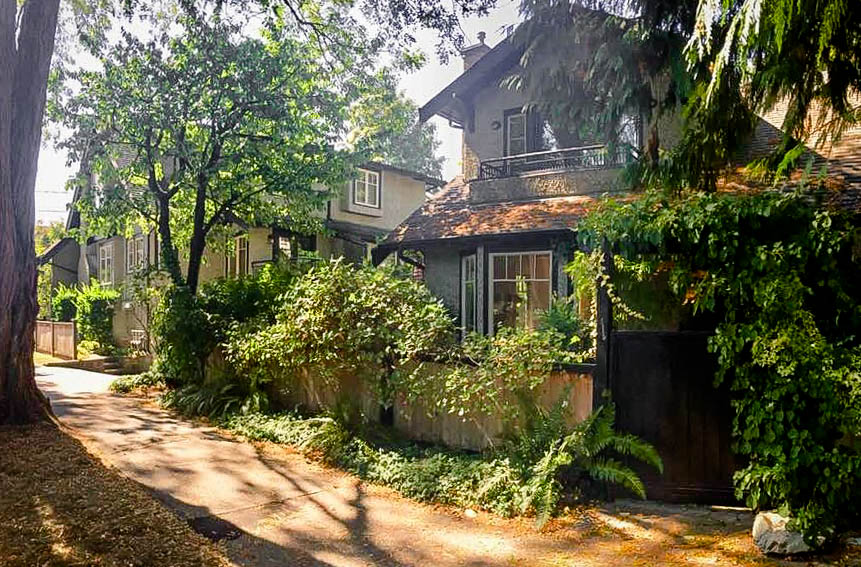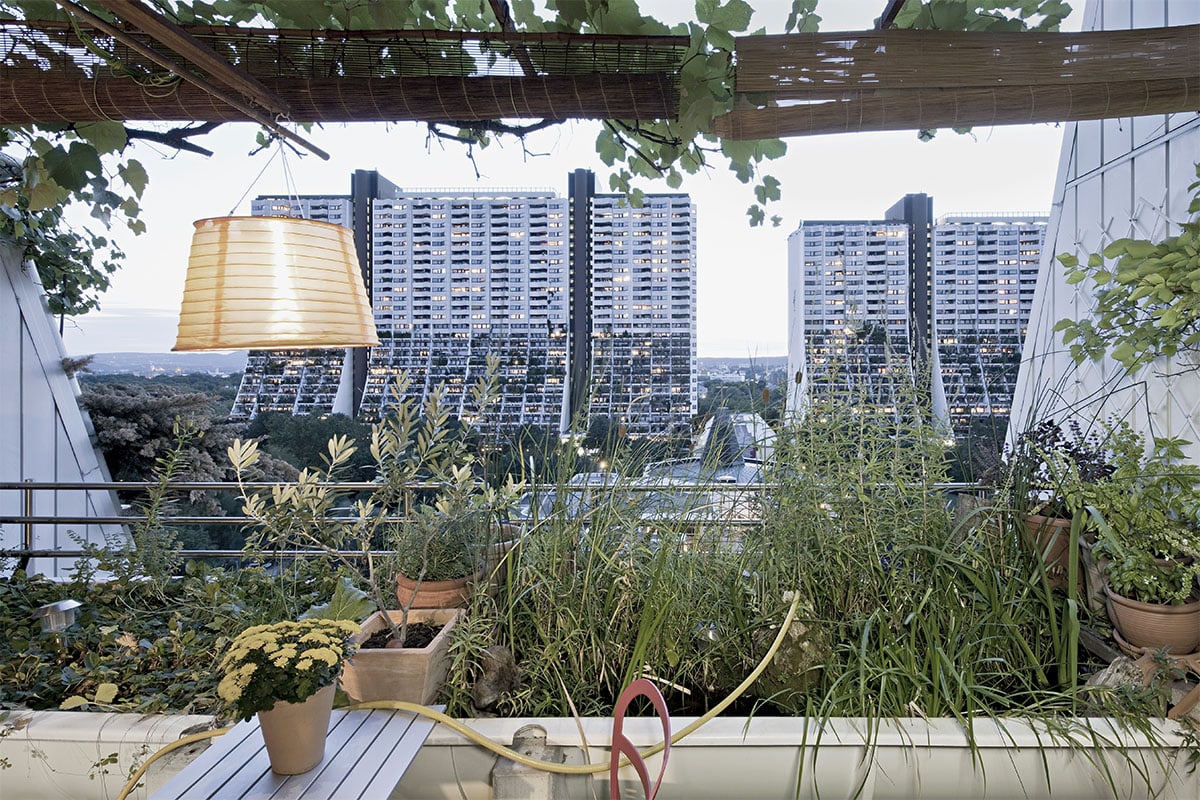Last week The Tyee published my article suggesting there might be many ways to finance a big increase in non-market housing in Vancouver, and that if we wait for the federal and provincial governments to solve our housing problems we might be waiting a very long time indeed.
Since the City of Vancouver spends almost twice as much per resident as Surrey, a city of similar size, I suggested this might be the time to economize, freeing up money to add a line for housing to the city budget — a line item that does not currently exist.
Not surprisingly my friends on the right of the political spectrum had no objections to this proposal.
But some of my friends on the left were more cautious. They suggested that we should not start a “race to the bottom” by cutting vital public services to fund housing, and that it would be a mistake to fall prey to the false siren song of the “austerity” choir. They argued ample funds for housing could be obtained simply by adjusting taxes so that those who have benefited most from the recent 300-per-cent increase in land values gave a bit of those unearned gains back to help those in desperate need of secure housing.
I must say that even though I am not convinced that every penny spent by the city is spent wisely, my critics have a point. So this week I hope to describe how we might gain roughly $250 million a year for non-market housing — co-ops, land trusts and non-profit housing corporations — by switching to a “fair tax” on land. That would be a strong start toward increasing non-market housing from 15 per cent to 50 per cent of the city’s residences.
Previously I have written about how Henry George had argued that taxes should fall most heavily on land, because land (unlike labour and capital assets like factories or equipment) gains its value passively as a result of the actions of those who engage in truly productive work nearby.
This week I would like to suggest how a “fair tax” on land might actually work in practice, and what the benefits might be.
Currently our city property tax bills include many payments. The list includes everything from the “provincial school tax” to levies for TransLink and Vancouver Metro.
But the single biggest tax is the municipal property tax, levied as a percentage of the value of your home, or a landlord’s property, or a business or industrial property. This single tax accounts for about 41 per cent of a typical tax bill and for a homeowner it is often in the $2,000 to $4,000 range. (For very expensive homes it can be much more.)
This municipal property tax is the main source of revenue for the City of Vancouver, supplying 57 per cent of the city’s $1.319-billion annual budget — or about $750 million a year (various fees, levies, interest payments, etc. make up the rest). With this money the city pays for all of the traditional services we expect, with the lion’s share of expenditures going to traditional city services of fire, police and engineering. The city does provide money for housing from time to time but these relatively small amounts come from other money pots, often from Development Cost Levies and Community Amenity Contribution taxes on development.
What would it take for the city to raise an additional $250 million a year from property taxes? What would be the costs and consequences of such a move? Crucially, how might such a move mitigate the horrible consequences of our totally broken urban land market?
Hearkening back to the principles espoused by Henry George, we would want a tax that rewarded efficient use of land and disincentivized wasteful use of land. Such a tax would be a progressive tax on just the land component of our property tax, providing incentives to use land to achieve social purposes — such as providing secure and affordable housing.
Fortunately our B.C. assessment system already separates the value of land from the value of buildings, in effect taxing them separately based on their values. Thus our tax system, in this one respect, is already “Georgian.”
But sadly our real estate taxes, unlike our income taxes, are not progressive. Our property taxes are a flat tax, taxing the same percentage of the value of your real estate no matter if its value is $500,000 or $5 million. Furthermore, we currently tax “productive” buildings, in the widest sense of the word, at the same rate as “unproductive” (in the Georgian sense) land.
This seems neither fair nor particularly productive. Maybe we should take a different and more progressive approach to our local property tax — providing funds for non-market housing at the same time we reward those who use our scarce urban land more productively.
Here is how.
Let’s take a typical Kitsilano property as our example, a single-family home valued at (a still shocking) $2.2 million. On our example property the value of the building, as assessed on the tax bill, is $200,0000, while the value of the bare land is $2 million — 10 times the value of the building!
But if this parcel had four equally nice homes on it, also valued at $200,000, the land value for each, since the $2-million land price is shared by four homes) would drop to $500,000 each. The value of the land component of real estate decreases in an inverse ratio to the number of units on the parcel — or in planning parlance, in inverse ratio to parcel density. Thus, as a general rule, the higher the density the lower will be the relative value of, and tax on, the land component of your tax bill. The more land you own the higher the land tax. (Yes, adding allowable density as proposed in the city’s Making Room proposal can inflate land values too. I’ll discuss ways to mitigate land inflation when adding density in an article next week.)
If the city charged a progressively higher tax as the amount of land dedicated to a dwelling unit increased, then we would both provide a market incentive for more efficient use of land and create a stream of revenue to support new non-market housing. We would also put a damper on the wildly inflated price of Vancouver’s high-end single-family parcels. Finally, we would capture more tax revenue from the city’s very expensive homes, homes often occupied by people who unfairly pay little or no income tax.

So how can we institute a “fair tax” to generate $250 million a year for new non-market housing? What if we were to increase the average tax on just the land component of the property tax by approximately 33 per cent. Since the property tax is 41 per cent of the tax bill we used as an example, this means an average property tax increase of about 13.5 per cent.
Now to make it productively progressive. To keep things simple let’s imagine just three tax brackets: all properties that collectively account for the bottom third of total taxable value; all homes making up the middle third of value; and homes in the top third of value.
The lower-priced properties could keep taxes the same, the middle third might see a 13.5-per-cent increase on their tax, while the top third see a 27-per-cent increase. Those unfortunates paying the top amount could reduce the tax by adding new dwelling units to the parcel, thus moving all dwelling units on the parcel to the middle bracket or below. Through this taxing strategy we both get money for new non-market housing and provide an economic incentive to add density throughout the city.
Obviously I have simplified the complex: there would likely be more brackets, the tax calculations are slightly more complex than I have made them and I have blurred the distinction between residential properties and commercial. But the principles still hold firm. (Also, I must note that such a change would need provincial approval. But the province has already approved the empty homes tax first proposed by COPE during our last municipal election. Chances are good they would do the same for these changes.)
Few of us like paying taxes. But this is a crisis. Voters in this city, and especially property owners, most of whom have made incredible unearned gains by simply sitting in their living rooms, cannot avoid the obligation to support a radical move.
I am using the word radical in its original sense, meaning root. We need to get to the root of the problem and cure it there. Do less and the tree dies. ![]()
Read more: Housing
















Tyee Commenting Guidelines
Comments that violate guidelines risk being deleted, and violations may result in a temporary or permanent user ban. Maintain the spirit of good conversation to stay in the discussion.
*Please note The Tyee is not a forum for spreading misinformation about COVID-19, denying its existence or minimizing its risk to public health.
Do:
Do not: